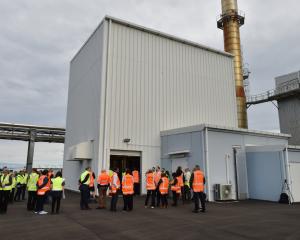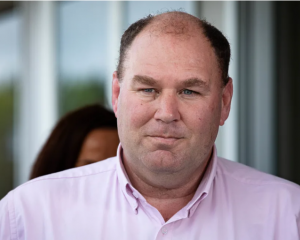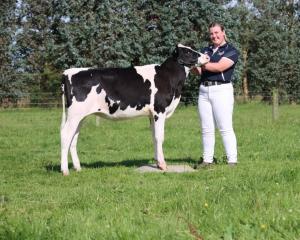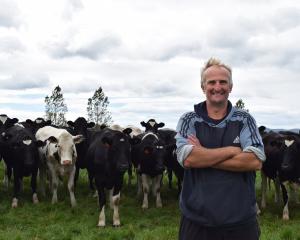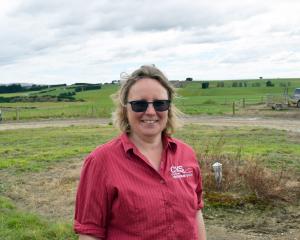
Customers who want unpasteurised and unhomogenised raw milk are delighted, but for Mr and Mrs Henderson, the paperwork and compliance requirements are ongoing and comprehensive.
They have a 130ha, self-contained property and run 280 cows, which include about 25, selected A2 DNA-tested cows, which are used for raw milk production.
They also grow about 10ha of crop, and their milk solid target is 100,000kgMS.
Mrs Henderson said they started selling raw milk about three years ago following customer requests, and demand grew from there.
While all the cows are run as one herd, the A2 cows are milked separately and their milk put in a 300-litre chiller tank.
A1 and A2 are genetic variants of the beta-casein milk protein.
Production from the other cows goes to Fonterra as usual.
The Hendersons provide milk to order, but are restricted by Ministry of Primary Industries' requirements as to how they sell, where they sell, and who they sell to.
They are not allowed to sell at markets or through shops, and can only deliver to customers' homes or sell from the farm gate.
''We were the first Southland registered farm to do it and there are only about 25 nationally,'' she said.
''I deliver 220 to 250 bottles of milk to Gore on Tuesdays and Fridays.
''Then on Wednesdays I go to Mataura.''
They also provide a cabin on their front lawn so customers can buy from a chiller or fill their own containers.
''We sell about 2500 litres a month, and that is about 1250 plastic two-litre bottles that are not being dumped,'' she said.
They also operate a token system - customers buy a bottle for $5, then pay $3.00 to refill it.
The raw milk is tested for listeria, campylobacter and salmonella every 10 days as well for shed hygiene.
As there is no single laboratory that can do all the tests required, they have to send samples to Christchurch and Hamilton.
Each cow gives about 20 litres at peak and between 10 and 15 litres during the winter.
The surplus is fed to their hens or their calves.
They use a commercial dishwasher that sterilises 25 bottles at a time.
They also employ one staff member, Emily McLean.
Mr Henderson said they had to have regular visual inspections by a vet, plus regular audits and full shed inspections.
''Compliance pretty much doubles the price of milk to the customer,'' Mr Henderson said.
''MPI wants raw milk sales traceability.
''You can't fight bureaucracy,' he said.




